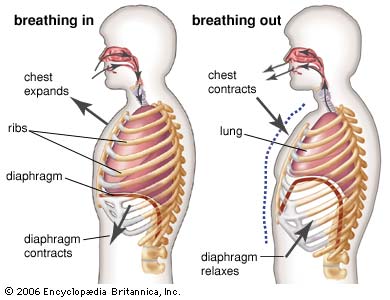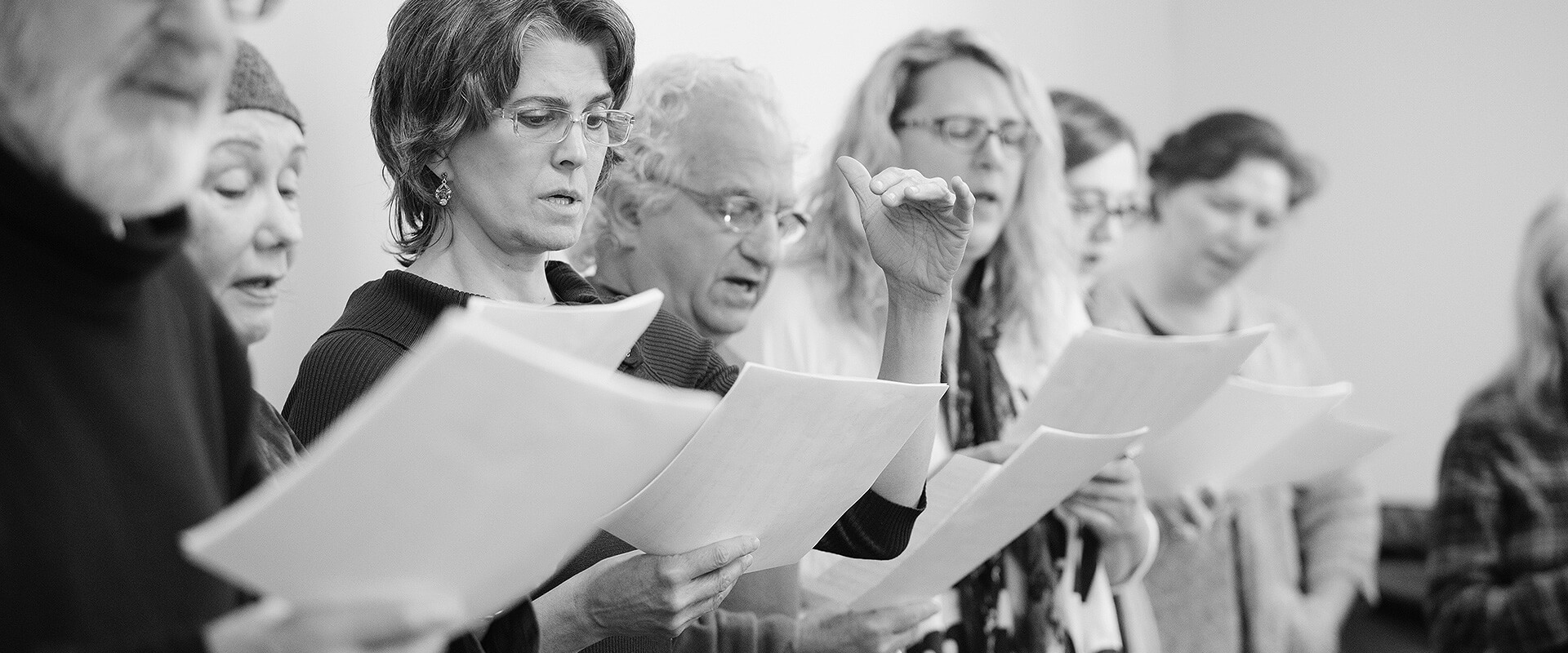Breathing
There is a misconception in singing that we breathe in quickly and breathe out slowly. In fact, in most songs there is plenty of time for a slow, relaxed breath before you sing. When you speak you breath in slowly and breathe out slowly – so that is nothing new. Its the same when you sing. There is something much more important than the speed of your breath… its the type of breath you take. Essential for singers is the low breath. This type of breath is not apparent to every person or aspiring singer… and without it, you will never learn the true meaning of Support (see Support).
There is endless discussion on the web and in singing circles about the types of breath – abdominal breathing, back breathing, shoulder breathing, coastal breathing, etc. In my approach there are two basic types of breath: high and tight as opposed to low and relaxed.
 Many teachers advocate abdominal breathing which is incorrect from a singing standpoint. In order to maximize the work of the diaphragm, the abdominals need to provide a stable base for the rib cage to make its upward rotation. (see the Diaphragm). A protruding belly impedes finding this stable base as a foundation. In addition to singing teachers, many teachers of wind instruments promote abdominal or belly breathing. They would also greatly benefit from learning a proper singing breath.
Many teachers advocate abdominal breathing which is incorrect from a singing standpoint. In order to maximize the work of the diaphragm, the abdominals need to provide a stable base for the rib cage to make its upward rotation. (see the Diaphragm). A protruding belly impedes finding this stable base as a foundation. In addition to singing teachers, many teachers of wind instruments promote abdominal or belly breathing. They would also greatly benefit from learning a proper singing breath.
In singing we want to develop a low, relaxed breath with strong movement at the waist, both side-to-side and in the back. Put simply, how you breathe is how you will sing. If you want a supported, connected sound, keep the breath low, controlled and relaxed. If the breath is too high it will also be tight which transmits undue stress to the throat and likewise to the phrase you sing thereafter. A high, tight breath is typical of someone who is nervous in performance, especially at the beginning of their training. Studying your breath will help you overcome this type of nervousness, as a low breath keeps you grounded and relaxed.
There are a few excellent approaches to permanently improve your breath from a singing standpoint. These need to be taught one-on-one, and your progress checked regularly, to make sure you are moving in the right direction. Everyone’s breath is very different and it doesn’t change overnight. Several months of consistent effort with Lesley’s approach is a realistic time-frame for fast-learners. Longer might be needed depending on your level of body awareness, ability to grasp the concepts properly and time spent working at it.
Naturally, good posture is also important as it allows for freedom of movement of the diaphragm. How the details of your posture affect your breath is also covered in the lessons. You can improve your breath with specific body-awareness exercises apart from singing. Unfortunately, breathing exercises while singing, especially at the beginning of your training often cause tightness in the throat. Developing a low, controlled breath is very important and will counter-act this problem. Breathing should become second nature. You will also learn a more efficient use of air (see Phonation) so that smaller breaths are needed, not bigger ones as some wrongly believe. This is another point misunderstood by many singers. It stands to reason that if you take too much air, tension will grab at the throat. Try it; you will see what I mean. It feels terrible. Take only what you can reasonably control and you will avoid this problem.
Your mouth, tongue, cheeks and lips should be completely relaxed while breathing in, the same as in normal, daily life. You don’t need to open wide, smile, show your eye teeth, bite an apple or do any other strange things. Whether you breathe by the nose or the mouth is less important than how relaxed and low it is. Your attention should be on keeping it low & controlled, and not the opening through which the air passes (nose vs. mouth).
Breathing exercises will improve your breath in everyday life, not just for singing. Breathing needs to be second nature for a singer, so this level of accomplishment is unavoidable. Luckily, it has many added benefits, so its also a very worthwhile endeavor. There are many good ideas here to point you in the right direction, but proper mastery takes guidance as well. Don’t be shy… I am here to help.
For more information or to book a private lesson, please go to the contact page.
-
How the Body Works : Breathing
-
Normal Respiratory Cycle
-
The Respiratory System
 Montreal Voice Coach
Montreal Voice Coach